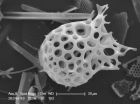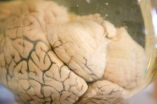(Press-News.org) A study by researchers from Finland found that diagnosis and treatment of anemia is important to improve quality of life among women with heavy periods. Findings published in Acta Obstetricia et Gynecologica Scandinavica, a journal of the Nordic Federation of Societies of Obstetrics and Gynecology, suggest clinicians screen for anemia and recommend iron supplementation to women with heavy menstrual bleeding (menorrhagia).
One of the common causes of iron deficiency and anemia is heavy bleeding during menstration. Over time monthly mentrual iron loss without adequate dietary iron supplementation can reduce iron stores in the body. Previous studies have found that iron deficiency anemia may impact women's physical performance, cognitive function, mood, and overall quality of life.
Led by Dr. Pirkko Peuranpää from the Department of Obstetrics and Gynecology at Hyvinkää Hospital in Finland, this prospective study assessed the impact of anemia and iron deficiency on health-related quality of life in 236 women treated for heavy menstrual bleeding. The participants were randomized to either hysterectomy or treatment with a levonorgestrel-releasing intrauterine system such as Mirena®.
The team separated the participants into two groups. Women with hemoglobin—the oxygen-carrying proteins in the red blood cells—levels less than 120 g/L were defined as anemic and those with levels greater than 120 g/L were in the non-anemic group. Researchers also measured levels of ferritin in the blood to assess iron stores in both groups.
Results show that at the start of the study, 27% of women were anemic and 60% were severely iron deficient with ferritin levels less than 15 µg/L. In those women who were anemic only 8% took an iron supplement. One year following treatment hemoglobin levels had increased in both groups, but women who were initially anemic still had significantly lower levels compared to those in the non-anemic group.
One year after treatment women in the anemic group had a significant increase in energy, along with physical and social function, and a decrease in anxiety and depression compared to the non-anemic group. It took five years for the iron stores to reach normal levels. "The quality of life of women with heavy periods is plural, but the treatment of anemia is important to get good results," concludes Dr. Peuranpää. "Our findings suggest that clinicians should screen for anemia in women with heavy menstrual bleeding and recommend early iron supplementation as part of the treatment process."
INFORMATION:
This study is published in Acta Obstetricia et Gynecologica Scandinavica. Media wishing to receive a PDF of this article may contact sciencenewsroom@wiley.com
Full citation: "Effects of Anemia and Iron Deficiency on Quality of Life in Women With Heavy Menstrual Bleeding." Pirkko Peuranpää, Satu Heliövaara-Peippo, Ian Fraser, Jorma Paavonen And Ritva Hurskainen Acta Obstetricia et Gynecologica Scandinavica; Published online: June 9, 2014 (DOI: 10.1111/aogs.12394).
URL Upon Publication: http://doi.wiley.com/10.1111/aogs.12394
Author Contact: To arrange an interview with Dr. Peuranpää, please contact Niina Kauppinen at niina.kauppinen@hus.fi
About the Journal
Acta Obstetricia et Gynecologica Scandinavica is the official scientific journal of the Nordic Federation of Societies of Obstetrics and Gynecology (NFOG). It is a clinically oriented journal that covers all aspects of obstetrics, gynecology and reproductive health, including perinatology, gynecologic endocrinology, female urology and gynecologic oncology. The journal is published in English and includes: editors´ messages, editorials, Acta commentaries, Acta reviews and original articles under the main categories of investigation, pregnancy, birth, fertility, infection, gynecology, gynecologic urology, oncology and surgery. The journal is published by Wiley on behalf of the NFOG. For more information, please visit http://wileyonlinelibrary.com/journal/aogs.
About Wiley
Wiley is a global provider of content-enabled solutions that improve outcomes in research, education, and professional practice. Our core businesses produce scientific, technical, medical, and scholarly journals, reference works, books, database services, and advertising; professional books, subscription products, certification and training services and online applications; and education content and services including integrated online teaching and learning resources for undergraduate and graduate students and lifelong learners.
Founded in 1807, John Wiley & Sons, Inc. (NYSE: JWa, JWb), has been a valued source of information and understanding for more than 200 years, helping people around the world meet their needs and fulfill their aspirations. Wiley and its acquired companies have published the works of more than 450 Nobel laureates in all categories: Literature, Economics, Physiology or Medicine, Physics, Chemistry, and Peace. Wiley's global headquarters are located in Hoboken, New Jersey, with operations in the U.S., Europe, Asia, Canada, and Australia. The Company's website can be accessed at http://www.wiley.com.
Iron supplements improve anemia, quality of life for women with heavy periods
2014-06-09
ELSE PRESS RELEASES FROM THIS DATE:
Most breast cancer patients may not be getting enough exercise
2014-06-09
Physical activity after breast cancer diagnosis has been linked with prolonged survival and improved quality of life, but most participants in a large breast cancer study did not meet national physical activity guidelines after they were diagnosed. Moreover, African-American women were less likely to meet the guidelines than white women. Published early online in CANCER, a peer-reviewed journal of the American Cancer Society, the findings indicate that efforts to promote physical activity in breast cancer patients may need to be significantly enhanced.
The US Department ...
Longer telomeres linked to risk of brain cancer
2014-06-08
New genomic research led by UC San Francisco (UCSF) scientists reveals that two common gene variants that lead to longer telomeres, the caps on chromosome ends thought by many scientists to confer health by protecting cells from aging, also significantly increase the risk of developing the deadly brain cancers known as gliomas.
The genetic variants, in two telomere-related genes known as TERT and TERC, are respectively carried by 51 percent and 72 percent of the general population. Because it is somewhat unusual for such risk-conferring variants to be carried by a majority ...
New molecule enables quick drug monitoring
2014-06-08
Monitoring the drug concentration in patients is critical for effective treatment, especially in cases of cancer, heart disease, epilepsy and immunosuppression after organ transplants. However, current methods are expensive, time-consuming, and require dedicated personnel and infrastructure away from the patient. Publishing in Nature Chemical Biology, scientists at EPFL introduce novel light-emitting sensor proteins that can quickly and simply show how much drug is in a patient's bloodstream by changing the color of their light. The method is so simple that it could be ...
Retracing early cultivation steps: Lessons from comparing citrus genomes
2014-06-08
Citrus is the world's most widely cultivated fruit crop. In the U.S. alone, the citrus crop was valued at over $3.1 billion in 2013. Originally domesticated in Southeast Asia thousands of years ago before spreading throughout Asia, Europe, and the Americas via trade, citrus is now under attack from citrus greening, an insidious emerging infectious disease that is destroying entire orchards. To help defend citrus against this disease and other threats, researchers worldwide are mobilizing to apply genomic tools and approaches to understand how citrus varieties arose and ...
Warming climates intensify greenhouse gas given out by oceans
2014-06-08
Rising global temperatures could increase the amount of carbon dioxide naturally released by the world's oceans, fuelling further climate change, a study suggests.
Fresh insight into how the oceans can affect CO2 levels in the atmosphere shows that rising temperatures can indirectly increase the amount of the greenhouse gas emitted by the oceans.
Scientists studied a 26,000-year-old sediment core taken from the Gulf of California to find out how the ocean's ability to take up atmospheric CO2 has changed over time.
They tracked the abundance of the key elements silicon ...
Study reveals rats show regret, a cognitive behavior once thought to be uniquely human
2014-06-08
New research from the Department of Neuroscience at the University of Minnesota reveals that rats show regret, a cognitive behavior once thought to be uniquely and fundamentally human.
Research findings were recently published in Nature Neuroscience.
To measure the cognitive behavior of regret, A. David Redish, Ph.D., a professor of neuroscience in the University of Minnesota Department of Neuroscience, and Adam Steiner, a graduate student in the Graduate Program in Neuroscience, who led the study, started from the definitions of regret that economists and psychologists ...
A tiny molecule may help battle depression
2014-06-08
Levels of a small molecule found only in humans and in other primates are lower in the brains of depressed individuals, according to researchers at McGill University and the Douglas Institute. This discovery may hold a key to improving treatment options for those who suffer from depression.
Depression is a common cause of disability, and while viable medications exist to treat it, finding the right medication for individual patients often amounts to trial and error for the physician. In a new study published in the journal Nature Medicine, Dr. Gustavo Turecki, a psychiatrist ...
Targeting tumors using silver nanoparticles
2014-06-08
(Santa Barbara, Calif.) — Scientists at UC Santa Barbara have designed a nanoparticle that has a couple of unique — and important — properties. Spherical in shape and silver in composition, it is encased in a shell coated with a peptide that enables it to target tumor cells. What's more, the shell is etchable so those nanoparticles that don't hit their target can be broken down and eliminated. The research findings appear today in the journal Nature Materials.
The core of the nanoparticle employs a phenomenon called plasmonics. In plasmonics, nanostructured metals such ...
Quick getaway: How flies escape looming predators
2014-06-08
When a fruit fly detects an approaching predator, it takes just a fraction of a second to launch itself into the air and soar gracefully to safety—but there's not always time for that. Some threats demand a quicker getaway, even if things get a little clumsy. New research from scientists at the Howard Hughes Medical Institute's Janelia Research Campus reveals how a quick-escape circuit in the fly's brain overrides the fly's slower, more controlled behavior when a threat becomes urgent.
"The fly's rapid takeoff is, on average, eight milliseconds faster than its more controlled ...
More than just a hill of beans: Phaseolus genome lends insights into nitrogen fixation
2014-06-08
"It doesn't take much to see that the problems of three little people doesn't add up to a hill of beans in this crazy world," Humphrey Bogart famously said in the movie Casablanca. For the farmers and breeders around the world growing the common bean, however, ensuring that there is an abundant supply of this legume is crucial, both for its importance in cropping systems to ensure plant vitality and for food security. Moreover, the U.S. Department of Energy Office of Science has targeted research into the common bean because of its importance in enhancing nitrogen use ...



